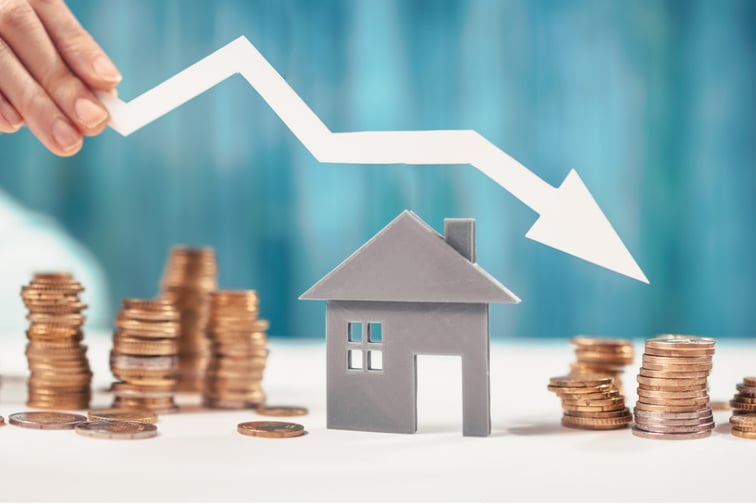

While normally used to describe a sustained decline in equity prices, a bear market can also refer to declines in real estate. But that is not necessarily a bad thing. During a bear market, it is less about action versus inaction—and more about choosing the right action. Your next move could help you build your wealth.
A bear market is a period when there is a sustained decline in equity prices. For the stock market or equities, a bear market is defined by a decline of more than 20% from recent highs in broad market indices, like the S&P 500. In more recent years, bear markets followed the dot-com crash of the 2000s and the global financial crisis of 2008-09. Usually, a bear market comes after a bull market, which is a period characterized by rising equity prices and investor optimism.
With the stock market in trouble so far this year, the definition of a bear market has been top of mind for investors. The definition of a bear market in equities remains clear; however, the definition is murkier so far as commercial real estate is concerned. Usually, it is not a term that is used to describe a drop in the values of commercial real estate. Investors would normally cite a downturn in property values as the end of a real estate bubble.
To understand the relationship between stocks and real estate, it is important to know the distinction between equities markets and real estate markets. In most cases, stocks are totally liquid and can be traded at any time. The value of a stock is also completely transparent. Real estate has a much longer sales cycle and is typically thought of as highly illiquid. Compared to stocks, real estate values are also less transparent.
At any moment of any trading day, stocks can be valued and revalued. Stock prices are transparent and open for anyone who wants to see to see. They are also subject to the fickle nature of the news cycle, which is capable of triggering almost immediate trading and balancing of supply and demand. All of this makes stocks subject to extreme volatility.
On the other hand, in real estate, most commercial properties are owned privately. The pricing of real estate is not subject to the balance between demand and supply at any given moment. For this reason, it is harder to cite a specific index and determine if real estate values are in a bear market or in a bull market.
Investment in both real estate and stocks drops during a bear market. What that does, however, is provide you with a few options. Here are three real estate moves you should consider making during a bear market.
Buy an income property (for cheap). If the housing market crashes, you should buy an income property at a time when property prices are dipping. If you buy an income property at a lower price, you will likely benefit from home price appreciation, which is especially beneficial if you want to own the home for the longer term. In that case, it really could pay to buy when home prices are low.
Find a good deal on a house to flip. If the real estate market is slow, flipping houses can be a risky business (to put it mildly). However, if you are more experienced in the trade of house flipping—and have a history of earning profits off it—you might want to shop for cheap homes to flip when property values are on the low side. Granted, you could wind up selling a property for less than you wanted during a bear market, but ultimately you just need to know whether you will earn enough to make it all worth it.
Buy REITs. When stock values are going strong, it is still possible for real estate values to fall. If you are looking for real estate and stocks in a bear market, however, you will want to buy real estate investment trusts, or REITs. An REIT, which is a company that earns revenue from different kinds of properties, can earn you money in a couple of ways: by increase the values of your shares over time and by collecting dividends.
It’s safe to assume that sitting out a bear market is your best course of action—but getting involved could also have positive consequences. During a bear market, it’s less about acting or not acting—and more about choosing the right move. Doing so could help you to build your wealth.
